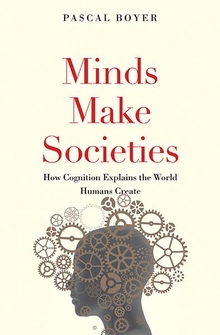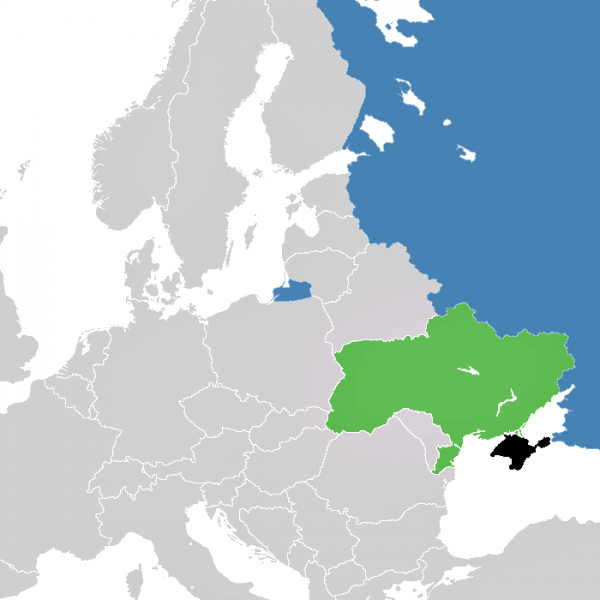Can Human Beings Understand the Economy?
Pascal Boyer—
It is in the nature of human beings that they create societies. Philosophers have known and said that much for millennia. These days, scientists can paint a detailed picture of how evolution by natural selection made us social animals, providing us with those capacities and preferences that makes social beings, those many bits of mental software that we use to maintain social life.
But to be designed for social life does not guarantee that you understand social life.
Indeed, the evidence from psychology and anthropology suggests that our social adaptations, while being indispensable to building societies, may also hamper our understanding of those same societies. Especially as we live in complex, mass-societies, very different from the small-scale communities in which our minds evolved over hundreds of thousands of years.
Consider for instance the economy. Most of us have little or no education in economics, but that doesn’t stop us from holding beliefs about all sorts of things from the benefits of international trade and the effects of immigration and the origins of inequality to the power of big business, the consequences of regulation, and so forth. For instance, many people assume that, if a foreign country becomes prosperous by trading with us, it must be because we are getting poorer in the process. Another widespread idea is that prosperity is a zero-sum game, a pie to be divided among the population, so that if some become rich it makes others poor. Another example is the notion that there is a fixed and limited amount of work to be done, so that the arrival of immigrants will automatically increase unemployment, and that, conversely, regulations limiting the working week will create employment as more people must be hired to do the same work.
Now economists generally complain that many of these ideas— that you can find in the programs of many political parties of all hues—are vague, incoherent, and often just plain wrong. They also conclude that such ideas become popular because people are uninformed, or because they blindly believe what politicians tell them. But both explanations are insufficient. If people were uninformed, their ideas would vary randomly, but they do not. And politicians, far from leading people into belief, generally express what they intuitively know will be successful, that is, what their audience already believes.
So, where do such ideas come from? One possible explanation is that human minds evolved to manage exchange and sharing in the context of joint production and consumption. In the small-scale societies that most resemble our evolutionary past, wealth is often zero-sum— the more you take of the hunted animals the less is available for others. Also, generous sharing is in such communities required as a form of insurance against the vicissitudes of production. Giving away most of the game you bagged creates debtors who will help you when you are less lucky. That is also why sharing is influenced by people’s needs. Giving a share of the production to those who were too sick to contribute is another form of insurance against misfortune. Finally, the fruits of collective action are distributed in proportion to people’s efforts—the hunter who harpooned the whale, a dangerous task, gets more than those who rowed the boat.
People are also equipped with psychological protection against exploitation. They detect attempts at free-riding, at getting the benefits of exchange and cooperation without paying the cost. They carefully monitor each other’s contributions and may even be motivated to incur costs in order to punish cheaters.
Experimental studies in behavioral economics show that these economic instincts are present and active in our minds, even though we live in conditions very far removed from ancestral communities. People to this day assume that the amount of effort you put into a joint action should predict your share of the profits, or that inequality may be a signal that someone is getting more than their share. Even young children have such intuitions long before they have heard of economic and political debates.
Our views of policies are guided by these entrenched, evolved psychological systems. For instance, Michael Petersen and other political scientists have shown that people’s attitudes to social welfare programs,unemployment benefits for example, are driven by two systems present in all human minds. One is the intuition that misfortune is random, so that insurance is required: I favor generous help, as I fear that I, too, may be a victim of bad luck. The other one is cheater-detection: I see that benefits are paid to people who apparently are not paying a cost which I intuitively interpret as cheating. Which of these two systems “wins” and drives our attitudes depends, not on information about the general economic effects of welfare benefits, but on cues to do with the recipients’ personality, attitude, prior effort and motivation to help themselves. In other words, we judge such issues on the basis of criteria that would have been relevant in ancestral, small-scale communities, but are often inappropriate to large-scale economic processes.
So, our views of the economy are largely influenced by cognitive and motivation systems that emerged though evolution in very different economic and ecological contexts.
But the problem is not limited to the economy. Most of our intuition about human groups is that they are very much like people or agents. We say that China “will not accept” this or that, that Congress “is trying to” do something, and so on. But such descriptions are only metaphorical. It is only in the context of very small groups that you can summarize the interaction of hundreds or thousands of agents, as the collective intentions of one “big” agent.
Also, we tend to think of political power as a physical force, as is clear from the many metaphors we use, such as “the government forced people to do x”, “people resisted”, “the resistance was overcome”, and so forth. But, again, the metaphors are misleading. The fact that some can influence the behavior of others, the definition of power, is explained by a staggeringly complex web of interactions between agents, not by a “force” that some possess and others lack.
Is all this worrying? Yes. A deliberative democracy requires that at least a good part of the citizenry have a reasonably accurate perception of what is going on. But evolutionary anthropology and psychology would suggest that such a lucid perception of the social and political processes is unlikely.
However, the scientific study of our social psychology may also hold the key to better politics. If we know the precise assumptions that produce our metaphorical, often misguided views of society, we may perhaps do better and proceed to a more refined form of political debate. Perhaps…
Pascal Boyer is the Henry Luce Professor of Collective and Individual Memory and professor of anthropology and psychology at Washington University in St. Louis.
Further Reading:



























